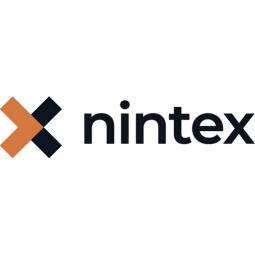下载PDF
Boosting Efficiency and Productivity in Banking with Nintex Foxtrot RPA
技术
- 分析与建模 - 机器人过程自动化 (RPA)
适用行业
- 金融与保险
用例
- 时间敏感网络
服务
- 系统集成
挑战
First Mid-Illinois Bank & Trust 是一家价值 15 亿美元的银行,在伊利诺伊州设有 37 个网点,在管理多个日常数据相关任务方面面临着重大挑战,这些任务既耗时又会对生产力产生负面影响。员工花费大量时间执行产品代码更改、透支限额调整、费用评估、责任代码更新和其他手动流程等任务。这使得他们服务客户或从事高价值项目的时间减少了。其中一项具体任务是更新符合银行透支保护服务资格的账户,这需要两名员工每月工作两天,平均更改 500 个账户的状态。此外,该银行于 2012 年底开始向不活跃的 DDA 和储蓄账户收取每月 1 美元的休眠费。然而,他们的核心系统无法将该费用追溯至已经处于休眠状态的账户,导致需要手动申请费用,这是一个耗时的过程。
关于客户
First Mid-Illinois Bank & Trust 是一家价值 15 亿美元的银行,在伊利诺伊州设有 37 个网点。该银行成立于 1865 年,拥有 400 多名员工,以其服务和经验而闻名。尽管规模庞大,该银行仍保持个性化风格,通过名字识别客户,同时还提供丰富的产品和知识。与大多数金融机构一样,First Mid-Illinois 始终寻求新的方法来提高效率、成本效益和生产力。该银行为广泛的客户提供服务,并不断寻找改进其服务产品和客户体验的方法。
解决方案
为了应对这些挑战,First Mid-Illinois Bank & Trust 选择 Nintex Foxtrot RPA 软件来自动执行多项与数据相关的任务,这些任务会浪费他们的时间和生产力。该软件充当“自动化员工”,处理当前员工使用鼠标和键盘执行的任务,但速度更快、更准确。该软件在通过现有应用程序的表示层运行时还维护了安全性和业务规则。 Nintex Foxtrot RPA 还用于管理银行的休眠费计划。该软件用于提取银行核心处理系统中的不活跃账户列表,并编写一个脚本来返回并评估适用的费用。这个过程在几个小时内就完成了,大大减少了这项任务所需的时间。该银行还使用该软件对其产品进行重大更改,以满足新的和不断变化的客户需求。
运营影响
数量效益
相关案例.

Case Study
Real-time In-vehicle Monitoring
The telematic solution provides this vital premium-adjusting information. The solution also helps detect and deter vehicle or trailer theft – as soon as a theft occurs, monitoring personnel can alert the appropriate authorities, providing an exact location.“With more and more insurance companies and major fleet operators interested in monitoring driver behaviour on the grounds of road safety, efficient logistics and costs, the market for this type of device and associated e-business services is growing rapidly within Italy and the rest of Europe,” says Franco.“The insurance companies are especially interested in the pay-per-use and pay-as-you-drive applications while other organisations employ the technology for road user charging.”“One million vehicles in Italy currently carry such devices and forecasts indicate that the European market will increase tenfold by 2014.However, for our technology to work effectively, we needed a highly reliable wireless data network to carry the information between the vehicles and monitoring stations.”

Case Study
Safety First with Folksam
The competitiveness of the car insurance market is driving UBI growth as a means for insurance companies to differentiate their customer propositions as well as improving operational efficiency. An insurance model - usage-based insurance ("UBI") - offers possibilities for insurers to do more efficient market segmentation and accurate risk assessment and pricing. Insurers require an IoT solution for the purpose of data collection and performance analysis

Case Study
Smooth Transition to Energy Savings
The building was equipped with four end-of-life Trane water cooled chillers, located in the basement. Johnson Controls installed four York water cooled centrifugal chillers with unit mounted variable speed drives and a total installed cooling capacity of 6,8 MW. Each chiller has a capacity of 1,6 MW (variable to 1.9MW depending upon condenser water temperatures). Johnson Controls needed to design the equipment in such way that it would fit the dimensional constraints of the existing plant area and plant access route but also the specific performance requirements of the client. Morgan Stanley required the chiller plant to match the building load profile, turn down to match the low load requirement when needed and provide an improvement in the Energy Efficiency Ratio across the entire operating range. Other requirements were a reduction in the chiller noise level to improve the working environment in the plant room and a wide operating envelope coupled with intelligent controls to allow possible variation in both flow rate and temperature. The latter was needed to leverage increased capacity from a reduced number of machines during the different installation phases and allow future enhancement to a variable primary flow system.

Case Study
Automated Pallet Labeling Solution for SPR Packaging
SPR Packaging, an American supplier of packaging solutions, was in search of an automated pallet labeling solution that could meet their immediate and future needs. They aimed to equip their lines with automatic printer applicators, but also required a solution that could interface with their accounting software. The challenge was to find a system that could read a 2D code on pallets at the stretch wrapper, track the pallet, and flag any pallets with unread barcodes for inspection. The pallets could be single or double stacked, and the system needed to be able to differentiate between the two. SPR Packaging sought a system integrator with extensive experience in advanced printing and tracking solutions to provide a complete traceability system.

Case Study
Transforming insurance pricing while improving driver safety
The Internet of Things (IoT) is revolutionizing the car insurance industry on a scale not seen since the introduction of the car itself. For decades, premiums have been calculated using proxy-based risk assessment models and historical data. Today, a growing number of innovative companies such as Quebec-based Industrielle Alliance are moving to usage-based insurance (UBI) models, driven by the advancement of telematics technologies and smart tracking devices.

Case Study
MasterCard Improves Customer Experience Through Self-Service Data Prep
Derek Madison, Leader of Business Financial Support at MasterCard, oversees the validation of transactions and cash between two systems, whether they’re MasterCard owned or not. He was charged with identifying new ways to increase efficiency and improve MasterCard processes. At the outset, the 13-person team had to manually reconcile system interfaces using reports that resided on the company’s mainframe. Their first order of business each day was to print 20-30 individual, multi-page reports. Using a ruler to keep their place within each report, they would then hand-key the relevant data, line by line, into Excel for validation. “We’re talking about a task that took 40-80 hours each week,” recalls Madison, “As a growing company with rapidly expanding product offerings, we had to find a better way to prepare this data for analysis.”





